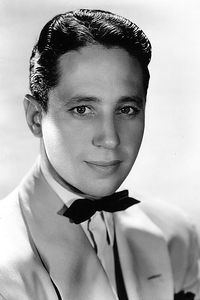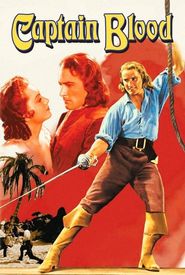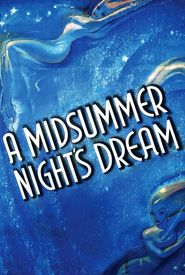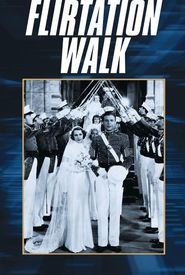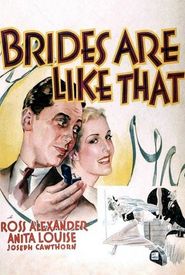Ross Alexander, a tragically brief life of a fresh-faced, boyishly handsome young actor, unfolded like a bad Hollywood movie. Born Alexander Ross Smith in Brooklyn, New York, to Maud Adelle (Cohen) and Alexander Ross Smith, a leather merchant, Ross was raised in Rochester, New York, where he pursued both drama and athletics in high school.
He took his first Broadway bow as a young teen in Blanche Yurka's long-running comedy success "Enter Madame" and eventually moved back to New York City following schooling, building up his stage resume in stock companies. On Broadway, he showed promise in plays such as "The Ladder" (1926) and "Let Us Be Gay" (1929),which introduced him to producer John Golden and marked an immoderate two-year association.
Paramount started him off in pictures with "The Wiser Sex" (1932),but nothing happened. Continuing on Broadway with various plays, he was re-noticed for films, this time by Warner Bros., which signed him to appear in its popular backstage Depression-era musicals and collegiate capers.
Alexander's fresh look and carefree, slightly cynical demeanor made him an instant favorite, and he soon began humming with popular second leads in such musicals as "Flirtation Walk" (1934). On the dramatic side, he was chosen to play Demetrius in the all-star "A Midsummer Night's Dream" (1935) and in Errol Flynn's "Captain Blood" (1935) he played Jeremy Pitt, Blood's friend and navigator.
Trouble started brewing, however, behind the scenes. Ross was being perceived by Warners as a second-ranked Dick Powell, and as the studio began featuring him in Powell's castoffs and other uninspiring B-grade movies, they decided it was too taxing to both groom him for matinee idol status and conceal his homosexuality at the same time.
A probable marriage of convenience to budding starlet Aleta Friele ended disastrously with her taking her own life with a rifle in their Hollywood Hills home. The actor was deeply shaken by this tragic event. He tried to cover his tracks yet again, however, by marrying beautiful actress Anne Nagel, whom he met while on the set of "Hot Money" (1936),"China Clipper" (1936),and "Here Comes Carter" (1936).
It didn't help quash his spiraling depression. Finally, Warners lost all patience and interest after having to cover up a potentially career-threatening gay-sex scandal, and Ross' promising career went down the tubes. To add insult to injury, he incurred major debt.
On January 2, 1937, less than five months after his marriage to Nagel and shortly after the first anniversary of his first wife's death, Aleta Friele, who also committed suicide, Alexander shot himself with a pistol in a barn behind his Encino ranch home. His last movie, the moderately received "Ready, Willing and Able" (1937) with Ruby Keeler, was released posthumously. Despite being the co-lead in the film, he was billed fifth, thus emphasizing the point that he had already lost most of his clout.
